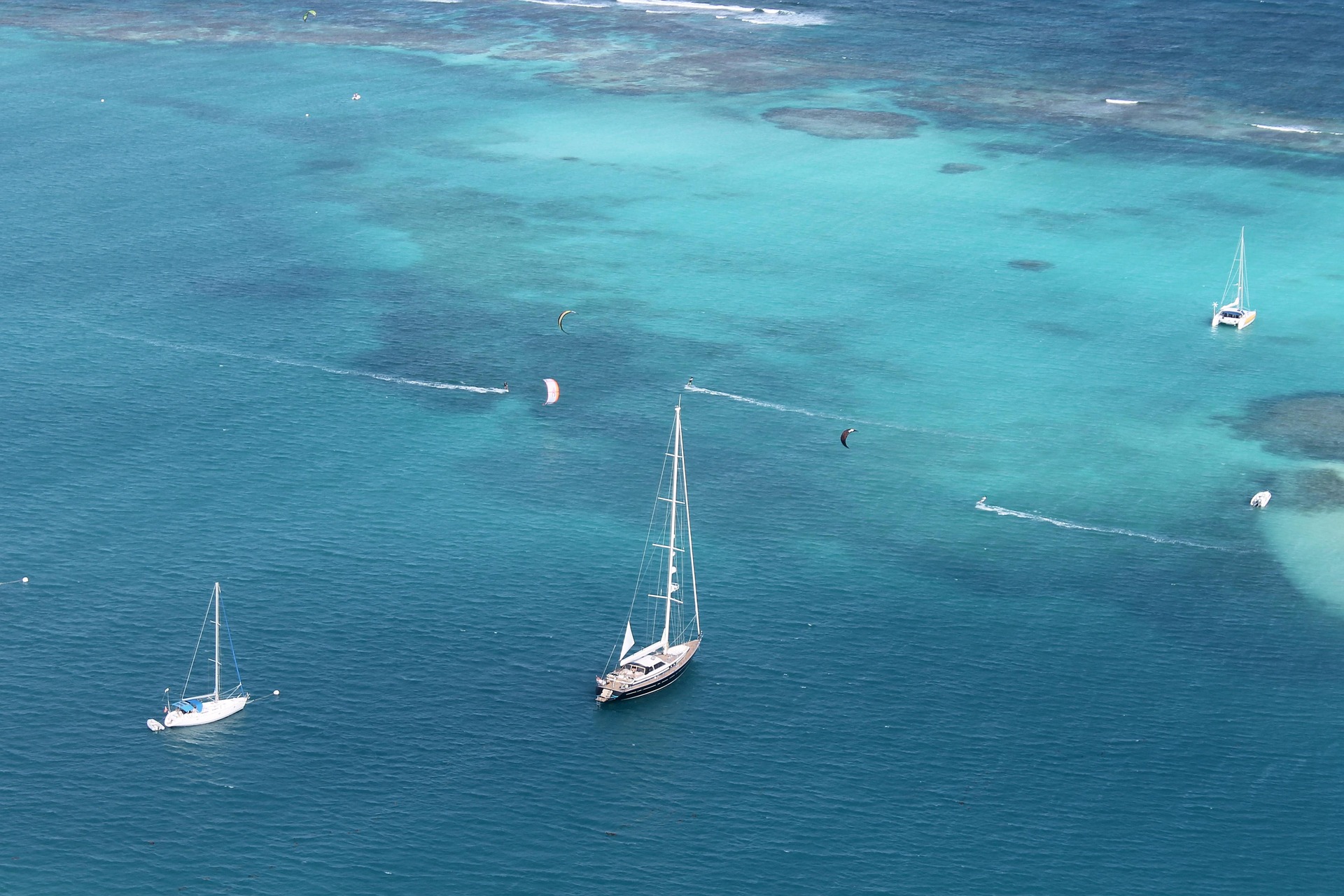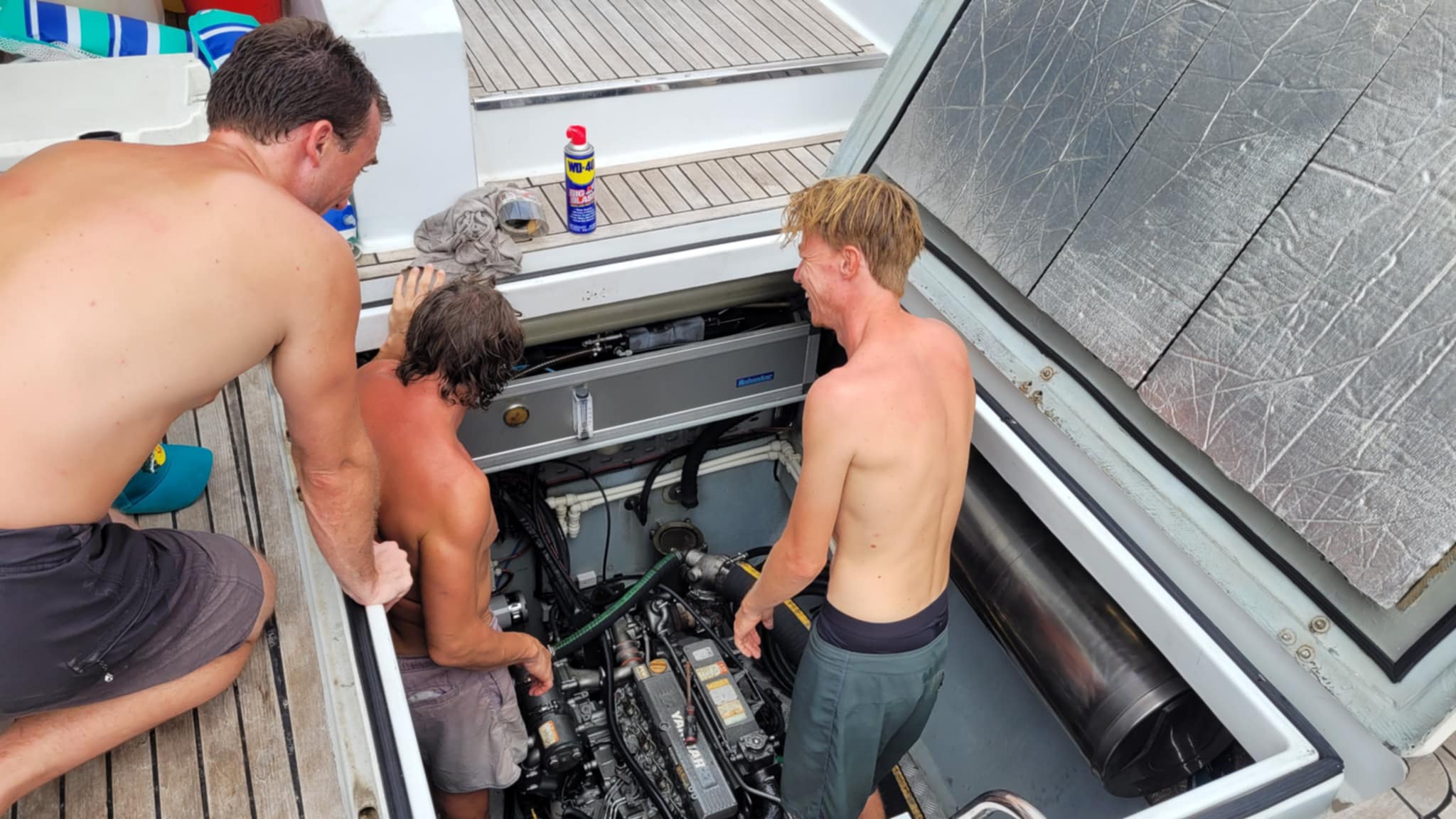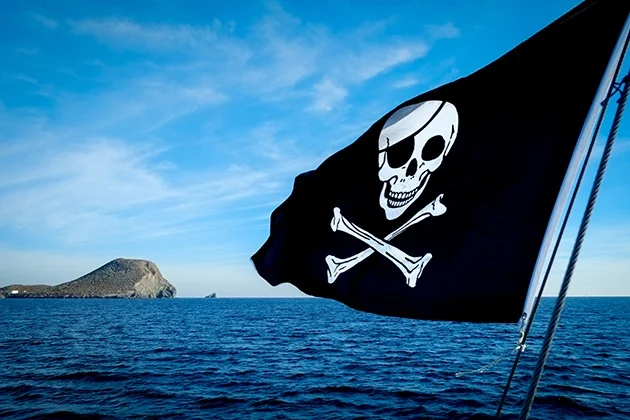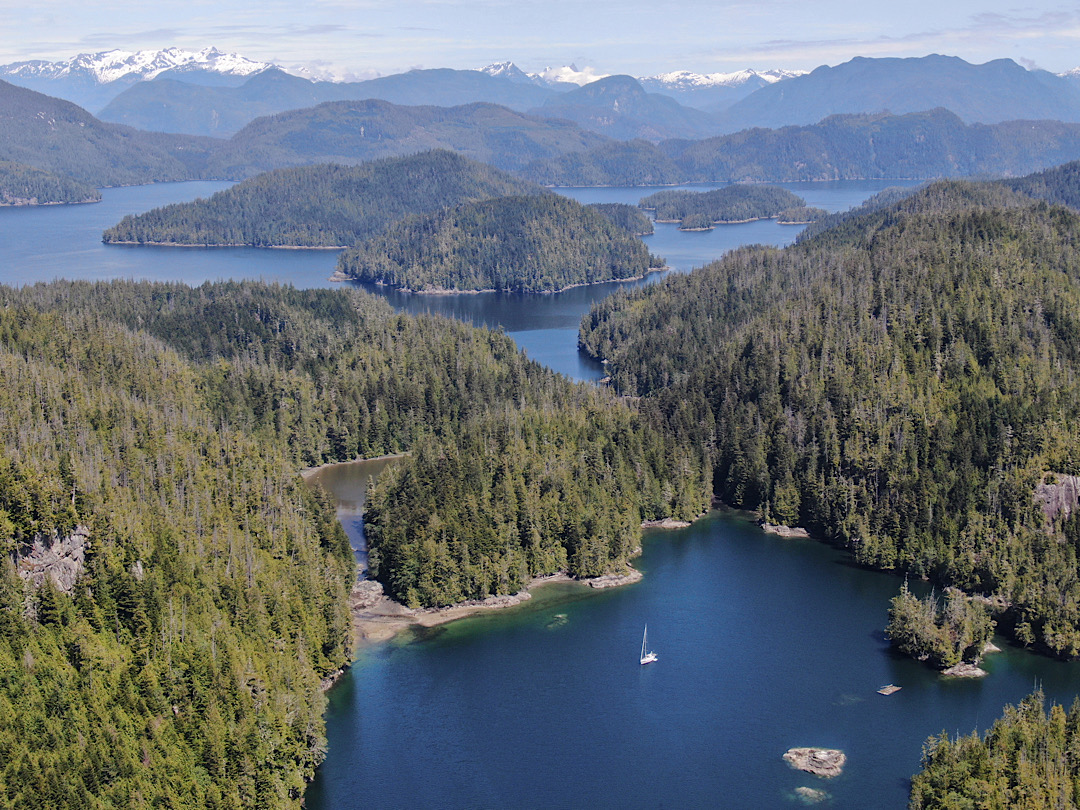How long does it take to get used to life afloat, and would you ever go back to land? This is a question many members of the noforeignland community get asked, as well as what they miss about life on land, so let’s take a look at what some had to say.
The first year is the hardest. That’s the consensus among many of those who’ve let go of the house, packed away the keepsakes, and stepped aboard a floating home with the wide world stretched before them. A year or so down the track, a rhythm sets in, and many say they can’t imagine ever going back.
Stepping into a new life
For most who are starting this new phase of life, their boat is new to them. Even for experienced sailors, many of the things they’re seeing or learning about that boat are happening for the first time. It often takes time to adjust from city life to boat life, with that initial period being full of learning; the boat, the systems, the weather, the compromises.
“You’re learning a new way of living that doesn’t come with the luxuries of a house,” a cruiser explained. “You’re learning how to communicate better, how much to provision, what doesn’t work, and where to put everything.”
It’s often a time of troubleshooting, replacing, upgrading, and having too many tins of something you didn’t really need and don’t really like. Of second-guessing choices, sleepless nights in rolly anchorages, and for some, wondering if maybe, you’ve made a mistake. Yet, almost everyone agrees – it’s worth it.
With greater freedom, comes more responsibilities
For some, the biggest adjustment isn’t the small space or constant motion, it’s the responsibility.
“You’re providing all your basic necessities yourself,” one sailor pointed out. “Power, water, waste, everything.”
Many cruisers have been on the receiving end of comments about how nice it must be to be on holiday 24/7, living on a boat. The truth; for most living on a boat is far more work and responsibility than living in a house ever was, but the rewards make it more than worth it. One cruiser summed it up well;
“Living aboard isn’t just living, it’s managing. You’re always monitoring something: the charge rate, the weather forecast, the bilge. But then you sit in a perfect anchorage at sunset, and you realize 95% of the world will never experience this.”
A new community
For many liveaboards, there’s paradoxical blend of isolation and belonging. You might be hundreds of miles from your old life, but you’re surrounded by a tribe of people who understand your strange new normal. The conversations at sundowners, efforts to help each other with boat work, and information passed over the radio, through Whatsapp groups or on sites like noforeignland, are all part of a community that ebbs and flows with the tides.
Friendships that endure time and distance are made, with like minded people from all over the world who you never would have met living in a suburb. You often part ways not knowing if or when you’ll see each other again, but leave one another’s lives richer for the time spent together. And if you do see each other again, it’s often easy to slip back into things.
- One photo, three captains, and it’s none of their boat
The turning point
As months spent living aboard start to pass, feelings of chaos or being overwhelmed start to become calmer, and routines take shape. People tend to find they’re worrying less about whether they can handle it, because they already are.
“It’s like falling in love,” one cruiser said. “You love it from the start, but somehow you love it more every day.”
When you reach this turning point it doesn’t mean everything is going to be hassle free all the time, after all, you’re still living on a boat, but it does bring a sense of confidence. It’s something each person and crew reaches in their own time, and often comes with the strong feeling that this way of life is home.
What’s left behind
No matter how much you love your boat and life at sea, there’s always something left behind on land to miss. Some are simple things we used to take for granted.
A fast internet connection
A proper washing machine
Fast Amazon deliveries
A big kitchen with drawers that don’t lock shut
A toilet I don’t have to worry about
A long soak in a hot bath
But conveniences aside, most cruisers mention their family, friends, and grandchildren as being what they miss most, but almost always with a qualifier. They miss the people, not the life.
Would you ever go back?
For most, the answer is a firm no… at least, not yet.
“We’d only move back to land if our kids wanted a non-floating home base, otherwise, there’s nowhere else we’d rather be.”
“I could totally live on land again, but for now, this is home.”
“We moved ashore while looking for our next boat. I miss it a lot. Land doesn’t move right anymore.”
There’s something telling in that, that despite the challenges, the desire to live this way is strong. Boat life moves, it changes, it challenges you. And once you’ve learned to live with that, it’s hard to unlearn it. As one liveaboard put it;
“Once you’ve lived like this long enough, you’ll never be the same again. You’ve learned adaptability. You’ve learned self-reliance. You’ve learned to see the world differently.”
One day, the majority of us will go back to land; what’s right for now doesn’t have to be right forever. But the memories made, the friendships forged, and the lessons learned under sail, those will stay with you long after you’ve raised the anchor one final time.












Great article . I think you really captured the essence of it all.
Thank you, it was inspired by comments from the noforeignland community as well as my own experiences 🙂
This is fantastic article. Well said on so many fronts.
Thank you – it was inspired by discussions between members the noforeignland community as well as my own experiences living aboard 🙂
Great read, thank you Telicia!
I’m glad you enjoyed it 🙂
Yes, that’s exactly how it is. This life changes you, and we don’t want to give up these changes at any price. Afloat since 2018 …
People back home often ask me what the timeline is, and they’re often surprised when I tell them we don’t have one, we’ll keep living on the boat for as long as we want/can keep doing it 🙂
The most of it is spot on but here is always a timeline. For some it’s when kids come along, for others it’s when the money runs out. For all of us, there is a time to end it.
We should all realise this and plan accordingly. I spent most of my life afloat, between big ships and small boats and giving that up is not easy. However muscles wear out, eyesight fades, reactions slow and the fun factor wears off.
I was cruising the Med. in the 70″s, I just sold my Med. boat feeling depressed at how the Med. has gone since those days.
For those just starting, I’d say, do as much as you can while you can but you have to know it will end sometime.
Yacht Mr John Cruising Adventures
https://blog.noforeignland.com/would-you-ever-go-back-reflections-from-life-at-sea/https://blog.noforeignland.com/would-you-ever-go-back-reflections-from-life-at-sea/